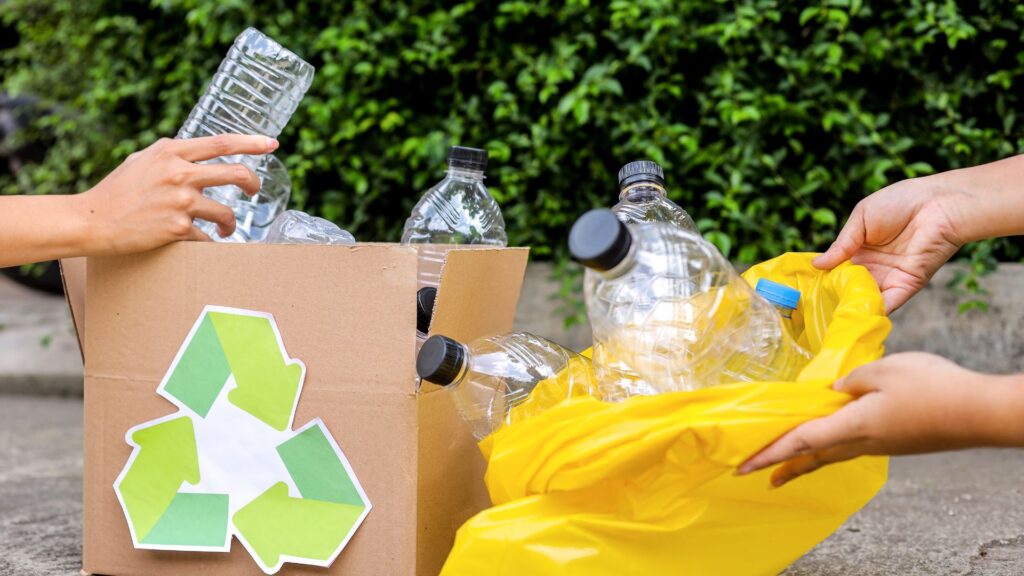Yard waste often accumulates quickly, transforming once-beautiful outdoor spaces into cluttered and unmanageable areas. The challenge of disposing of this organic debris in a way that respects both efficiency and environmental responsibility has become increasingly relevant. Modern yard waste disposal methods have evolved beyond simple dumping and burning, embracing more sustainable solutions that minimize harm to the ecosystem while making the process straightforward for homeowners and landscapers alike.
Harnessing efficient techniques for yard waste removal involves strategic planning and smart utilization of available resources. This includes timely collection, segregation of organic materials, and partnering with services that prioritize eco-conscious disposal methods. By choosing the right path, yard waste transitions from being an unwanted burden to a valuable resource that can enrich soil health and support local ecosystems.
Understanding Yard Waste and Its Environmental Impact
Yard waste comprises a variety of organic materials generated from routine garden maintenance, landscaping, and seasonal cleanups. These materials include grass clippings, leaves, branches, twigs, and sometimes even uprooted plants. When improperly handled, yard waste contributes significantly to environmental problems such as greenhouse gas emissions, water contamination, and loss of biodiversity. Landfills become overburdened with decomposing organic matter that releases methane, a potent greenhouse gas, exacerbating climate change. Furthermore, yard waste dumped in natural areas can disrupt local habitats and promote invasive species.
Conversely, when managed thoughtfully, yard waste offers remarkable opportunities for environmental stewardship. Composting yard debris returns valuable nutrients to the soil, improving its structure, fertility, and moisture retention without relying on synthetic additives. Mulching with shredded branches and leaves suppresses weeds, reduces soil erosion, and conserves water, contributing to resilient landscapes. Many municipalities and private companies have adopted green waste collection and processing programs that divert organic matter from landfills to dedicated composting facilities.
Innovative Approaches to Yard Waste Disposal
Emerging technologies and services have revolutionized the way yard waste is handled, making disposal easier and more sustainable. One key advancement is the increased availability of portable dumpster rentals tailored specifically for yard debris. These dumpsters allow for the convenient consolidation of waste materials, facilitating quicker cleanups and reducing the need for multiple trips to disposal sites. Service providers equipped with such solutions often emphasize recycling and composting options, ensuring that the collected material is processed responsibly. The integration of efficient pickup schedules and clear guidelines for sorting waste further streamlines the entire operation, saving time and reducing environmental impact.
Additionally, eco-friendly yard waste disposal services now prioritize practices such as bioenergy recovery, where organic matter is converted into renewable energy sources like biogas. This method not only diverts waste from landfills but also generates clean energy, contributing to a circular economy. Other innovative approaches include on-site chipping and mulching, which transform branches and brush into useful landscaping products without the need for transport.
The Role of Professional Yard Waste Removal Services
Navigating the logistics of yard waste disposal can quickly become overwhelming, especially when dealing with large volumes or difficult-to-handle materials. Professional yard waste removal services fill this gap by offering expertise, equipment, and labor that simplify the process for property owners. These companies assess the specific needs of each client, providing tailored solutions such as drop-off dumpsters, scheduled pickups, or full-service cleanup crews. Beyond mere disposal, many professionals ensure that collected yard waste is routed through environmentally responsible channels, such as composting centers or recycling facilities.
Moreover, professional services often incorporate educational components, advising customers on best practices for minimizing waste generation and maximizing recycling potentia l. They help identify which materials can be composted or repurposed, reducing the volume of organic debris sent to landfills. This guidance fosters a culture of environmental responsibility among communities and encourages long-term adoption of eco-friendly yard care habits.

DIY Yard Waste Disposal with an Eco-Conscious Mindset
For those who prefer a hands-on approach, managing yard waste independently can be both rewarding and environmentally sound when done correctly. Home composting is one of the most effective ways to handle yard debris, converting organic materials into nutrient-rich soil amendments right in your backyard. Composting requires attention to the right balance of green (nitrogen-rich) and brown (carbon-rich) materials, moisture levels, and aeration to accelerate decomposition while preventing odors. By dedicating space and time to a well-maintained compost pile or bin, homeowners reduce their reliance on municipal waste services and decrease landfill contributions.
Additionally, incorporating mulching techniques during garden maintenance helps recycle clippings and leaves back into the landscape. Mulch preserves soil moisture, moderates temperature fluctuations, and suppresses weed growth, offering numerous benefits without additional environmental costs. When disposal is necessary, sorting yard waste carefully and utilizing local green waste collection programs ensures that materials are processed responsibly.
Seasonal Challenges and Solutions in Yard Waste Management
Each season brings unique challenges to yard waste disposal, requiring adaptive strategies to handle fluctuating volumes and different types of debris. Spring often involves clearing accumulated leaves and branches left from winter storms, while summer focuses on regular lawn maintenance and pruning. Autumn generates large amounts of fallen leaves, which can overwhelm disposal systems if not managed efficiently. Winter may reduce yard waste production but can introduce frozen or wet materials that complicate removal efforts.
Adapting solutions seasonally might include scheduling more frequent pickups during heavy leaf fall or investing in equipment like shredders to reduce bulk. Some homeowners opt for temporary on-site storage in compost bins or designated piles to manage overflow before final disposal. Service providers also adjust their offerings to match seasonal demand, often expanding their fleet or extending hours during peak periods. Flexibility and foresight in responding to seasonal shifts ensure that yard waste disposal remains efficient, eco-friendly, and tailored to the natural rhythm of the landscape.
Community and Municipal Roles in Sustainable Yard Waste Disposal
Sustainable yard waste disposal extends beyond individual efforts, involving community organizations and municipal programs that facilitate large-scale environmental stewardship. Local governments increasingly implement yard waste collection services, curbside pickups, and designated drop-off sites to divert organic waste from traditional landfills. These initiatives often include educational outreach to encourage proper sorting, composting, and reduction of yard debris. Collaborative efforts between residents, service providers, and authorities create a network of support that enhances the overall effectiveness of waste management systems.
Community engagement further promotes innovation in yard waste handling, such as establishing neighborhood compost hubs or cooperative mulching projects. These grassroots activities foster social connection while addressing environmental concerns, demonstrating how collective action amplifies individual impact. By participating in or supporting these programs, residents contribute to a healthier local environment and help shape policies that prioritize sustainability. The synergy between personal responsibility and public infrastructure forms the backbone of resilient, eco-friendly yard waste disposal frameworks.
The Economic Benefits of Efficient Yard Waste Disposal
Beyond environmental advantages, efficient yard waste disposal delivers tangible economic benefits for homeowners, businesses, and municipalities. Proper management reduces the volume of waste transported to costly landfill sites, lowering tipping fees and transportation expenses. Recycling and composting organic materials can create valuable byproducts like mulch and fertilizer, which may be sold or reused, generating revenue or savings. Moreover, well-maintained yards free of excess debris increase property values and curb appeal, making efficient waste disposal a smart investment in real estate.
On a broader scale, communities that adopt sustainable yard waste practices often experience reduced public spending on waste infrastructure and improved public health outcomes. The decrease in landfill usage extends the lifespan of existing sites, deferring the need for expensive new facilities. Additionally, promoting local green waste industries stimulates job creation and economic diversification. Through these financial incentives, efficient and eco-friendly yard waste disposal emerges as not only an environmental imperative but also a practical strategy for economic resilience.
Future Trends in Yard Waste Disposal Technology
The future of yard waste disposal is poised for exciting developments driven by technological innovation and environmental urgency. Advances in bioengineering may enhance composting efficiency by introducing specialized microbes that accelerate organic breakdown while neutralizing pathogens. Robotics and automation could streamline collection and sorting processes, reducing labor costs and increasing accuracy in separating recyclable materials. Smart waste bins equipped with sensors might monitor fill levels and composition, optimizing pickup schedules and reducing unnecessary trips.
Additionally, emerging renewable energy technologies could further transform yard waste into valuable resources. For example, integrated systems that convert organic matter into biofuels or electricity at the community level offer promising alternatives to conventional disposal. Data analytics and artificial intelligence will likely play roles in predicting waste generation patterns and improving system design. As these trends mature, yard waste management will become increasingly sophisticated, efficient, and aligned with the principles of a circular economy.
Conclusion
Choosing efficient and eco-friendly yard waste disposal methods creates a win-win scenario where both the environment and the individual benefit. With options ranging from professional removal services to do-it-yourself composting, every property owner can contribute to reducing landfill waste and promoting sustainability. Adapting to seasonal challenges, supporting community initiatives, and embracing innovative technologies further enhance the positive impact of responsible yard waste management. In Ventura, CA, Mobile Dump Junk Removal provides expert solutions tailored to the needs of residents seeking convenient and environmentally sound disposal options. To connect with them, call (805) 751-3744 or email mobiledumpremoval@gmail.com for personalized service that transforms yard waste challenges into green opportunities.
